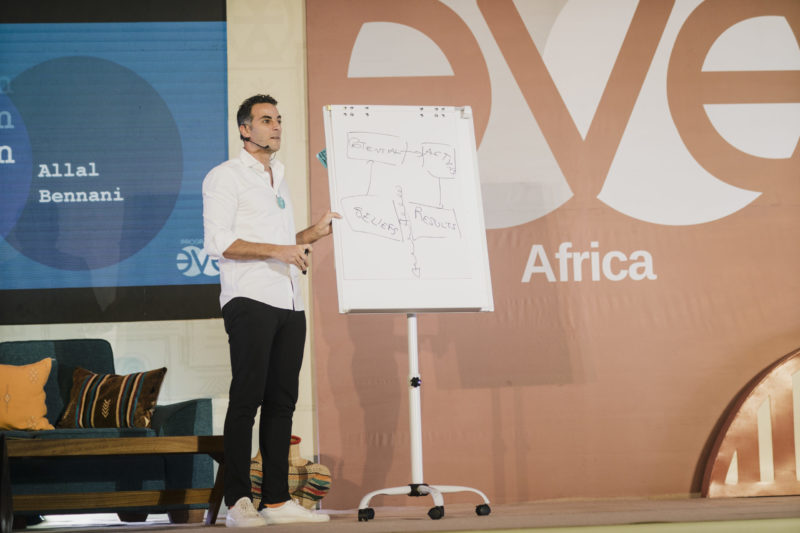In August 2018, the right to error was brought into French legislation, allowing individuals and businesses “to make mistakes in their administrative declarations without sanctions for the first incident”. The decision received lots of coverage in the international press, which widely reported that the French government intended to set an example on this famous “right to error” that has been the subject of countless articles on economic and social transformation. But what exactly is the right to error, and how does it apply to the business world? We take a closer look.
What is error?
From the Latin errare meaning “to wander away from”, the word error refers to the idea of an adventure that leads the mind away from the path shown by the will. It suggests a kind of derailment in our way of doing things that leads to an outcome that may not have been expected.
But error must not be confused with:
- Failure: As with the idea of serendipity, error can lead to important and surprising discoveries, such as the Lascaux cave complex, the microwave oven, Viagra, dynamite or even Nutella. Failure is neither final nor fatal: the term “fail” actually derives from the Old French faillir, “non-occurence” or “cessation of supply”. So, failing isn’t the end of the line, and there’s nothing stopping you from starting again when supply returns to normal!
- Fault: This has a moral and legal meaning, it applies when a duty is not performed, whether that duty is institutional (in a legal context for example) or based on ethics and/or deontology.
- Cheating: Here there are a specific relational and intentional elements. Wilful misrepresentation or manipulation are acts of trickery designed to fool somebody, but the cheat in question is fully aware of his or her actions.
- Slip-up: Made when there is a lack of good judgement in a situation, so if an error is made in good faith, it’s not necessarily a genuine error.
- Poor decision: Most often unintentional, because it’s caused by a cognitive bias. This sort of error is often a time bomb waiting to explode. Some time after it has been made, a poor decision leads to an unfortunate outcome, and can also trigger a series of breakdowns and complications.
Individual error, group error
Errors are made by individuals. But they can also be made by groups. In his latest book, Les paradoxes de la coopération, Patrick Scharnitzky (a speaker at EVE) explains: “Groups are living systems, rife with intersubjectivity and many different influences that may lead them to make colllective errors – even serious ones. This is because the decisions made within a group are approved without being discussed, and are subjected to the law of the greatest number. How is it possible to believe that a group of intelligent people could possibly be wrong, and lead everyone else down the path of misjudgment and deadlock?”
Practice makes imperfect
Well, at this stage we’ve already understood that the idea of making an error is troubling. But is it not inevitable? With the rise of the optimalism movement, and the acceptance of our complete and human selves, the “right to error” concept has been gaining ground in companies over the last ten or so years, in contrast to the quest for perfection that came out of the Toyota Production System (TPS) in the 1980s.
The “right to” error underlines the idea that the freedom to be wrong isn’t necessarily a given in our society, even though reason would suggest that it should be: As Seneca had it, “Errare humanum est”. And by definition, humans are incompatible with perfection.
Punishment: a slap on the wrist, and don’t do it again…
The criteria for evaluating performance, according to our widely accepted test and approve system, looks out for what’s missing more than it applauds initiative. These criteria derive from the idea of merit-based promotion, which was instilled in the French school system after the Revolution, and “bonélèvitude”, a term coined in the 1970s by the author and educator Jean Repusseau, referring to how people are afraid of making mistakes and uphold perfection as the only possible outcome.
The opposite of promotion is punishment: that’s the image of a “naughty pupil” sent to the corner of the class wearing a dunce’s cap. Punishment is seen as educational, a means of assigning responsiblity to a person, as the philosopher Marcel Conche pointed out in his 2003 book Le fondement de la morale (The Foundation of Morality) “children should never receive punishment merely as such; it should always come as the natural consequence of their fault.”
In his well-known book written in 1762 Emile or Education, Jean-Jacques Rousseau promotes the idea of immanent punishment: to “safeguard the heart from vice and the mind from error”, the philosopher goes on to advise “never to inflict punishment on children merely as punishment, but as a natural consequence to what they have done wrong.” For example, you shouldn’t punish others for lying, but rather ensure that the negative aftereffects of lying, such as not being believed when you finally do tell the truth, work as a deterrent.
However, applying the educational principle of punishment to managerial relationships can be counterproductive because it may appear to infantalize employees. Not only is the punishment likely to be misapplied to justify rejecting people who you want to get rid of for illegitimate and/or unfounded reasons, but it can just as dangerously stop people from doing something that may succeed and be beneficial, and end up being a sort of self-censorship.
No fail, no gain!
And that’s the source of the problem: as companies are becoming aware of the importance of “thinking outside the box”, beyond the established framework, it’s impossible to be creative or innovative without making mistakes. As Albert Einstein said: “A person who never made a mistake never tried anything new.”
So should we be trying to make mistakes? Veering away from the control/approval/punishment cycle, making errors is a wonderful way to learn. Because allowing mistakes isn’t taking away responsibility: following the Test&Learn approach, errors lead to learning, as long as we look into why they happen. Edgar Morin made the good point that: “Errors can be useful if we recognize them, pinpoint their origin and cause, and stop them from happening again.” So errors become a source of wealth, and drive us forward.
Promoting the right to error: a few best practices
But how can we strike the right balance between error and risk? How is it possible to encourage people to try, even though they may fail, without relinquishing responsibility? And how is it possible to value performance and success without creating a powerful sense of guilt if failure does occur? Here are a few things to think about:
In a business environment, promoting the right to error depends on how the structure of the business is developed: a balance needs to be struck that allows room for employees to go off track, while providing them with a secure safety net. Taking risks must not mean encouraging danger, neither for the employees of a company nor for its ecosystem: so a complete risk-evaluation procedure needs to be implemented, covering both technical and human risk. The consequences of errors must also be taken into account: punishment doesn’t need to be eliminated, just reconsidered. Errors are rarely the fault of a single person. Ideally, any sanctions should be defined constructively and as a group, in the form of a charter, for example.
From a managerial perspective, the best way of demonstrating the right to error is by setting the right example. Acknowledging your own misjudgements to your teams by talking about them freely is another way to break the taboo and show that managers can make mistakes as well, and that it’s “OK”. It’s also a way of showing humility and wisdom: As Jean-Jacques Rousseau put it: “People must never be reluctant to admit that they are wrong, because by making this admission, they prove that they are wiser today than yesterday.” Don’t seek out a single scapegoat. Consider that an error is a shared responsibility and you’ll be able to concentrate on how to do better next time.
Automatized processes such as RETEX and other forms of constructive feedback can be used to enhance the learning process. An internal communication channel may be put into place to share information about errors with teams, and what lessons have been learnt: there’s nothing wrong with taking advantage of what other people have gleaned from their mistakes! You may like to offer workshops, seminars, and/or training sessions to raise awareness about the issue, and encourage everyone to express themselves freely. A space may be provided where each person can share their fears and brainstorm solutions. Opportunities can also be given for celebrating disappointments: a failed sales negotiation might be a chance to get together as a group (why not over a drink or two?) to play down the failure and acknowledge the effort that went into the project.
Valentine Poisson for the EVE Webmagazine. Translated from French by Ruth Simpson.
See you on December 13 at the “failure dinner”
The Meet & Learn event planned for December 13, 2018, led by Marie de Royer and Mathieu Simonet, is going to be a failure dinner!
So why not join us at 7pm, at the Cantine du monde, 5 rue Notre Dame de Nazareth in the 3rd district of Paris and find out more about the benefits of getting it wrong, and how to manage errors when they occur among employees.






